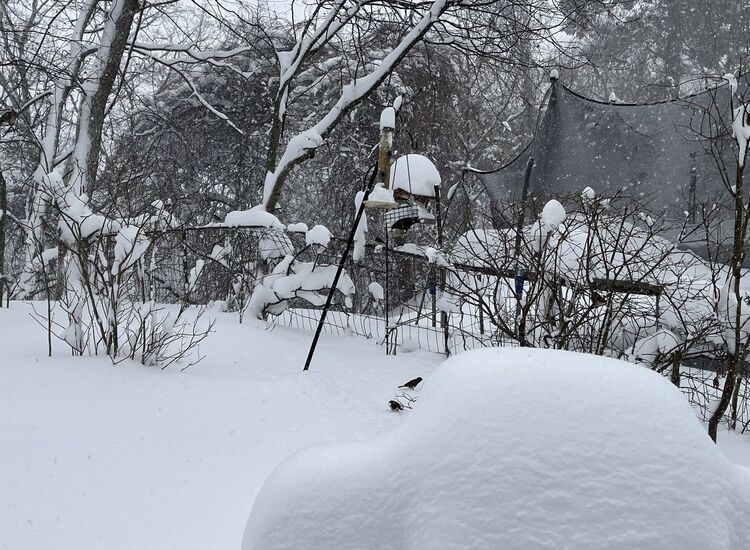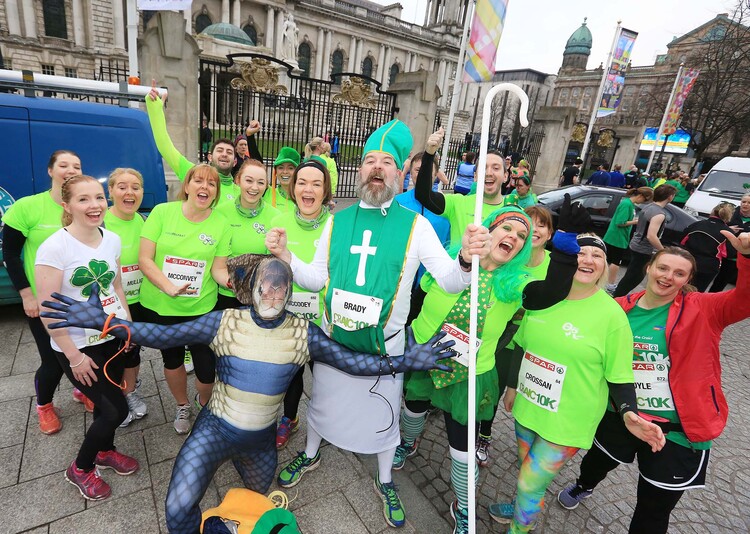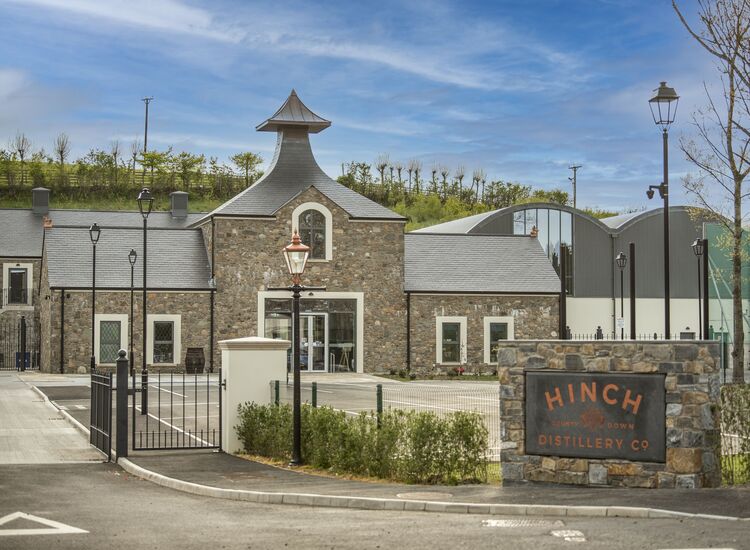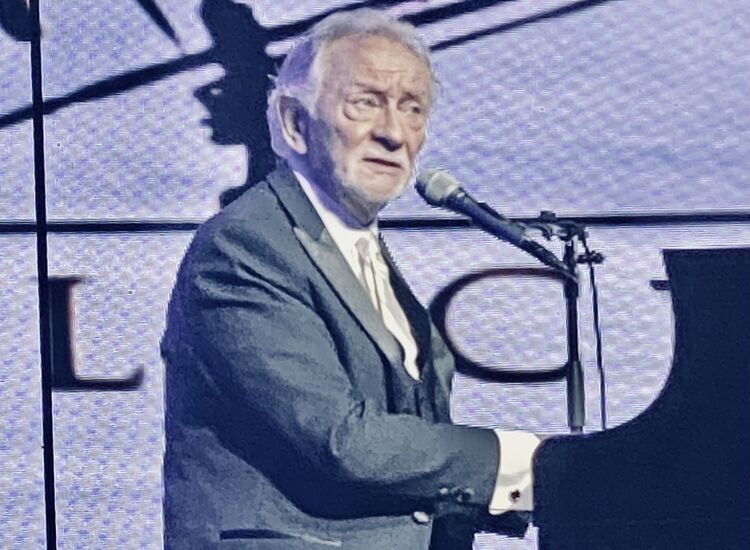Certosa di San Martino, Naples.
A story by James Rodgers
On Saturday morning Joe saluted the officer on watch, walked across the gangway of the ship and stepped onto the pier. He and the other midshipmen had liberty until Sunday night. The sun was up but well before mid-day so the walk was pleasant. Gaeta was just a small resort town and the train station was not far up the hill. He had plenty of time to catch the train to Naples.
Joe could think of worse places to spend the summer before his final year of college. The Amalfi Coast, Naples and Rome on weekends. All paid for by the U.S. Navy. The four years after graduation would not be so great, but the Navy had paid for college so that was that. He walked along the pier until he arrived at the harbor road. The town was quiet―asleep until the tourists woke up. Joe lit up a Marlboro and took a long drag and exhaled. At fifty cents a pack at the ship's store the cigarettes were a bargain, and yet another perk of the good old Navy. Might not be much, but for Joe, growing up on a farm in Georgia, saving a buck was important. Three meals a day, a bunk and an education were even better. When he got the scholarship his mother had said, "Go! Get off the farm before it owns you like it does your brothers and your poor father!" Joe had looked into his mother's loving eyes, kissed her cheek and ran to the bus station, tears in his eyes but knowing he was escaping the hard life.
The hot air of southern Italy was mixed with a slight breeze coming off the harbor. The road had some sand and dirt creating a fine dust as Joe walked. Off the ship civvies were allowed and Joe wore a faded plaid cotton shirt and chinos. His short haircut marked him as a sailor, his clothes, a college boy. Over his shoulder he carried a backpack as he would be staying overnight in Naples. At the bar, which sat in the middle of the harbor road and split the road, Joe turned away from the quay and headed up the hill. The road twisted in subtle switchbacks revealing neighborhoods with tobacco shops, bars and restaurants. The locals lived above the shops. The streets were empty with an occasional grandmother sweeping dust onto the street. Still early but the sun was gathering force and without the harbor breeze or shade Joe finally felt the heat. It was a good heat, not like the Georgia heat which could bake a farmer in a bee's minute. The air was different too. Joe could not define it, but it was nothing like the air in the states. It smelled of Italy. That's all he knew. The first night in, at the bar that split the harbor road, glass doors open to the night air, he had smelled it along with the fumes of the Vespa bikes and the foreign cigarettes. He learned a pack of Marlboros to the bartender could buy him a few beers. He also learned that the local girls did not talk to sailors. But just standing at the zinc-topped bar, with the smells and sounds of the summer evening along the harbor road, was enough for him.
Halfway to the train station the sun brightened off the buildings and the light burst upon Joe and only then did he fully realize it was Saturday. He stopped and lit another cigarette, then turned and gazed down the hill at the sparkling Mediterranean. Jesus, it was gorgeous, he thought. And it was good to be free of the ship, and the farm, and the hallowed halls of his small southern college. He took a long drag and slowly exhaled. Yes, it was good.
The last switchback took him to the road which led to the station. He saw it up ahead. Sleepy was a word that aptly described it. Even at a distance. Not that Joe was not familiar with sleepy. Rural Georgia was sleepy. Its towns, crossroads, train stations, even market days. But still, the train station at Gaeta was that drowsy sleepy only found in Italy, or so Joe assumed. Maybe Spain and Portugal and a few other places. At the station Joe bought a round trip ticket to Naples from a man older than his grandfather. And Joe's grandfather was plenty old. On the platform another old man sat on a baggage cart half asleep. The platform was otherwise empty. A sleepy Saturday and Joe felt content. Something relaxing about the pace, or lack of pace. Reminded him a bit of the days at the creek when he was younger, swimming in the cool water, and later lying on the bank rolling Bull Durham and having a smoke. Standing on the platform he smelled Italy, inhaled his Marlboro, looked at the old man on the baggage cart, and savored the moment. Then it passed.
He stood and waited. Two other midshipmen showed up―Bill and Mike, Naval Academy guys. They were going to Naples and then the ferry to Capri for the night. They wanted to go to the clubs at Anacapri, a village way up on the top of the island, a big rock in the middle of the Bay of Naples. Bill had a fiancé back at Annapolis―a St Mary's girl. Joe knew that because often, late at night in the wardroom, he would find Bill writing to his fiancé, a framed photo of her in front of him as he wrote. Mike was different. Mike had cycled through Europe in July and barely made the ship in time, and in need of a serious haircut. He was tall and fit and at Annapolis he rowed crew. Mike and Bill were two different people. But they were academy guys and would do twenty years, and if they made Admiral, thirty years. Right now, though, Mike was enjoying his summer while Bill was pining for his girl. Joe was in for four years and then he would get out. His history professor told him he would still be young enough to get his doctorate and join academia. Anything to avoid returning to the farm.
The three midshipmen talked and smoked. The sun rose higher but the overhang of the platform kept them in the shade. At 8:15, fifteen minutes late, the train approached. Joe and his shipmates boarded. The train had a passageway outboard and compartments inboard. Families were in the compartments so the midshipmen stood in the passageway, arms hanging out the open windows, smoking and looking at the passing scenery―lemon groves, fig trees and vineyards. The talk was mostly what plans had been made. Joe didn't say much, just that he would skip Capri and stay in Naples for the night. Bill and Mike joked with him, predicting he was going to the "gut" for some action. Joe smiled his Southern smile and said, "I shall enjoy the Neapolitan hospitality." Bill and Mike then dropped it as Naples was approaching.

Faraglioni off Capri.
At the station the midshipmen split up, Bill yelling to Joe, "If you get bored we'll be at Hotel Caesar Augustus in Anacapri!" Joe nodded and waved. In front of him was Naples―the taxis, scooters, smell of diesel and gas fumes, noise, grime, and general mayhem. He soaked it in; nothing like the farm in Georgia, or his sleepy college town, or even Gaeta. Distilled from the soot and the odors was the rush of newness. This was Joe's third time here but the rush remained. He hitched his backpack over his shoulder and headed into the melee. The streets soon narrowed and he was in that part of the city where only the Neapolitans lived and worked. In back issues of National Geographic he had read of the teeming streets and alleyways in the cities along the Mediterranean. He had assumed modern life had changed that, but it had not. Joe liked that about Naples. Where his fellow midshipmen saw a dirty city Joe saw life in full technicolor. In a strange way he had come to realize that life on a farm fine-tunes the senses. The smell of manure, of pig sties, of the general store infused with scents of pipe tobacco, bourbon, and tractor grease, had prepared Joe to process each smell individually and also as one rich amalgamation of a place. Here, a world away, Joe processed the peculiar and unique mixture of smells that made up Naples.
He headed for the museum. He has been there the Saturday before. He had enjoyed it, but better he had met a girl. An Italian girl. A Neapolitan girl. A beautiful girl. Anna. It had been by chance. Anna had trusted him because she had met him at a museum, not at a bar or on the street. Forbidden by her family to speak with sailors, that day she had gone with her instinct. And her instinct had been that the American sailor she came to know as Joe was to be trusted. He was not a Catholic and was a farm boy, but she sensed a connection―that he saw things as she did. This all occurred within seconds, but Anna knew her mind and her instinct. And so they spoke, they enjoyed the paintings and, later, shared espresso at a cafe. Then she rushed off home, with the promise to meet him the following Saturday at the museum.
Joe slowed as he approached the museum. He was early. His heart beat with anticipation. He could feel it. He ducked into a cafe and ordered espresso with a shot of bourbon. He knew he shouldn't drink this early but he needed to slow his heart rate, and his nerves. He was surprised when he first learned the Italians stocked bourbon. Only the good stuff. Not the kind Joe drank in college, barely legal and just one notch above moonshine. The Italians imported the big brands, although it seemed only American tourists and sailors drank it. He ordered a second shot, sipped it slowly until he could feel his heart rate slow, then downed the espresso. The espresso was Joe’s cultural counterweight to the bourbon.
On the sidewalk Joe checked his watch and headed over to the museum. And there she was. Anna. Waiting patiently on the steps. She saw him and waved. He lifted his hand to her and quickened his step. She wore a sundress and sandals. She smiled. Her skin was olive and hair jet black. He had never met any girl like Anna. Her eyes were dark brown like the swirling river back home when the floods came. Unpredictable and exciting. Anna smiled at him in a comfortable way. She put her feelings front and center, so unlike the college girls. Joe liked that. In the museum they took their time looking at paintings centuries old. That too was new to Joe. The few museums he’d been to had very little in the way of the masters. In her accented English Anna educated him on art. Soon he was holding her hand and occasionally her hip would brush against him. His senses were heightened yet he felt a peace within himself. He was at home with this Neapolitan girl. Joe was struck by this realization—that he felt at home in this strange and foreign place with this girl.
Joe and Anna strolled out of the museum and walked along the waterfront. Away from the piers and ferry slips up toward embassy row, where the cafes were a little more upscale and the city a little more calm. They chose an outdoor cafe with enough people seated to guarantee them anonymity. The waiter brought a carafe of the house red and Anna and Joe sat back and smiled at each other.
The explosion when it came blew out the windows of the cafe and the shards of glass became deadly projectiles. Joe knew this because as the dust and smoke cleared he saw the carnage and he saw the shard of glass stuck in his left arm. He could hear nothing at first but when he regained his hearing he realized he was screaming Anna’s name. He started to crawl among the debris and then he saw her. She was on the ground under a broken table. He reached her but was afraid to touch her. She seemed unhurt but for a trickle of blood running down her face from a small cut. Then he heard her gasp for breath and her eyes opened. It took a few seconds and then she recognized him and reached up and put her arms around him. She grabbed his face and looked into his eyes. With his right arm he held her tightly and kissed her forehead. It was then she saw his arm bleeding. Carefully she removed the glass and wrapped his arm with a table napkin. Joe took another napkin and wiped the blood off Anna’s face. They sat under the table and she began to shake uncontrollably. Joe held her closely and whispered all would be okay. He knew it never would be quite okay. Never again. But he kept that to himself. Soon strong arms were pulling them up from under the table. Through the haze of the smoke and dust they were brought to the street and a medic determined they were okay. Other medics pushed past with survivors on stretchers and loaded up the ambulances. A petty officer on shore patrol grabbed Joe’s shoulder and asked him what ship he was on. Joe told him he was on the flagship up in Gaeta. The petty officer wrote his name down on a clipboard and told him there was a general recall. It was then that Joe remembered Mike and Bill over in Capri. The petty officer took their names and ordered Joe to go to Capri and round them up. As Joe walked away the petty officer shouted, “Then get your college asses back to the ship!”
Joe and Anna walked away from the carnage and the destruction and headed deep into the city. He would get her home before he went to Capri. Anna clung to his arm but she gained strength as they walked. They entered a square which was as peaceful as the waterfront had been chaotic. Anna brought him into a church. They knelt in a pew and she whispered prayers in Italian. Joe bowed his head and listened. Then they walked through the city until the streets narrowed to not much wider than alleyways. And it was at one such street that Anna stopped and said they were home. The door opened and chaos returned, this time with cries of relief and hands grabbing Anna and arms hugging her until she was lost in a sea of family. Then the father saw Joe and shook his fist and screamed at him. Joe knew enough Italian to surmise that he was to leave and never come back. Then it was the mother’s turn and she wagged her finger in his face and spew forth rapid-fire Italian, no doubt damning him to eternal hell. Anna broke free and hugged him, whispering in his ear to meet again at the same time the next week. Then she was pulled away and the door was slammed shut in Joe’s face. Joe noted the number of the house and he learned the name of the street. If he could not see her in his two remaining weeks he knew where to write.
Joe caught the last ferry of the day to Capri. The ferry was crowded as it was Saturday night and by the gestures and noise he knew the people were talking about the explosion. As Joe leaned against the rail an American approached him and told him it was thought the Red Brigades was behind the attack. It was a revolutionary group opposed to Italy’s membership in NATO. The cafe was just a block from the American consulate. The American told Joe to be careful and then went back into the cabin where his wife sat drinking coffee. Joe lit up a cigarette, exhaled and tried to stop his hand from shaking. Forty minutes later the ferry pulled into the small pier at Capri. Joe flagged a taxi and soon the small car was making its way up the rock island by way of cliff-hanging switchbacks and near collisions with taxis intent on getting to the waterfront. They arrived in Anacapri and the taxi pulled up to the Hotel Caesar Augustus. Joe found Mike and Bill in the dining room for the early dinner call. They had heard nothing of the explosion. With wide open eyes they listened to Joe’s story and patted him on the back for surviving. He made no mention of Anna. She was locked somewhere in his soul and he refused to give her up. When dinner ended Mike and Bill headed to the clubs. Joe took a rain check.
After booking a room Joe made his way to the terrace that adjoined the dining room. From the terrace he could see the Bay of Naples and the city. It was a beautiful sight. He sat at a table and a waiter approached. Yes, they did have American bourbon. Joe ordered a double. The sun was setting and there was a slight breeze. From the terrace Naples appeared benign. He felt safe for the first time since the explosion. But he knew he had, in that moment, lost his youth. He had lost his innocence. Not the innocence one loses in college or being a midshipman out at sea. This loss was of true innocence—that innocence that comes with believing in the world. Believing in order and goodness. Believing that others believe in the goodness. That was lost. He knew he probably would have lost it later in life. But it was gone now. He drank the bourbon and smoked. His hand was no longer shaking. The sun had set and the lights of Naples in the far distance warmed him. With the loss of innocence came a new truth. Seize the moment. He thought of Anna. He would see her again. If not before he left to return to college then in a year when he could return as a commissioned officer. He would make his way back to the girl who had stolen his heart just at the moment his youth and innocence had evaporated into the ether.
The night grew darker and the lights of Naples sparkled brighter.

James Rodgers practices maritime law and lives with his wife and two children in Manhattan. He is the author of the recently-published novel “Long Night’s End,” extracts of which have appeared in the Irish Echo. He has read his fiction at the Irish-American Writers and Artists Salon and at the Artists Without Walls’ Showcase.









